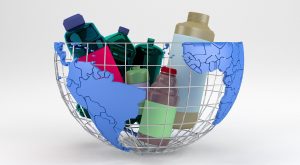Consumers who are very or fairly involved with the environment increased from a 51% in 2019 to a 59% in 2020
The months of lockdown appear to have changed consumers’ sensitivity to the environment, accelerating a change that was already underway. This is reflected in Kantar’s Who Cares, Who Does? 2020 report, which shows that the number of consumers who are very or fairly involved with the environment (the eco-actives and eco-considerers) is increasing every year. They currently represent a 59% of buyers in 2020, compared to a 51% in 2019. Furthermore, this same report, carried out between May and June of this year, reveals that 46% of the respondents stated that environmental problems affect them personally.
Though it is true that before the pandemic there was already a perceived increase in collective awareness of the environment, COVID-19 has motivated more people to take on the responsibility.
But what does it mean to be considered ‘eco-active’? According to the UOC, eco-active consumers are those who seek strategies to reduce their level of plastic waste always or very frequently, while eco-considerers are those who sympathise with certain actions but, although they are aware of their importance, do not always carry them out.
This upward trend in ‘greener’ consumers is similar on a global scale: Europe leads, both Eastern Europe (67%) and Western Europe (64%); followed by Latin America (53%); the United States (52%), in third position, and, lastly, Asia (42%).
Thus, consumers are gradually internalizing and assimilating certain behaviours, such as recycling materials, buying recycled packaging, etc. until they naturally become part of their lives.
Food safety and pollution, the new concerns
The pandemic has led to the emergence of individuals who are more concerned with hygiene and health aspects. They want to know, now more than ever, where the food they eat comes from or how food has been handled at the different levels of the distribution chain. And the fact is that air pollution and food safety have become the greatest concerns of consumers in 2020, increasing by 1.1% and 1.9% respectively in comparison to the 2019 report.
Other topics of interest: Sustainability, a key issue in the packaging of fruit and vegetable products
When it comes to buying food, there are two areas in which consumers are most committed: guarantees and quality of the product, and its packaging. These aspects influence their purchasing decisions over other variables such as the number of calories or the amount of sugar in the product. As packaging is one of the most visible aspects of a product, it is easy for the consumer to make an assessment. This is the case of the multilayer PET/PE containers, also known as technical containers, which are formed by several layers, that protect the food during the time it is packaged. Now that RepetCo Innovations has developed an innovative technology for its mechanical recycling, in addition to their optimal food preservation properties, they are also recyclable and sustainable. The containers can be reused by the food industry, e.g. in trays and packaging, bottles for soft drinks or detergents, and fibres for the textile and automotive industry.
The number of eco-dismissers consumers decreases
At the other end of the scale are the eco-dismisser consumers, i.e. those that are not too interested in the environmental challenges the world is facing and that do not act to improve it. In spite of this, the figures show that this type of consumer is declining worldwide by an 8%. Latin America shows the highest decrease compared to 2019 (16%) followed by Eastern Europe (7%).







